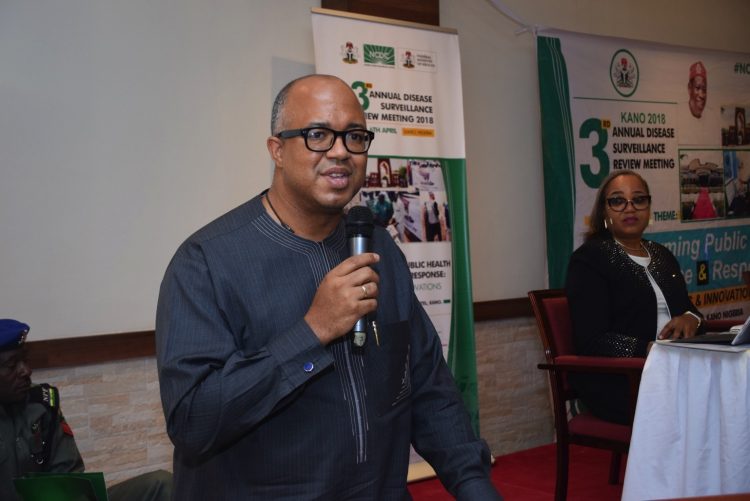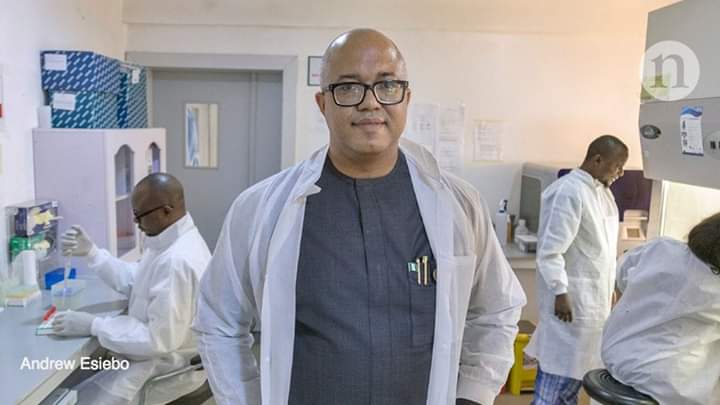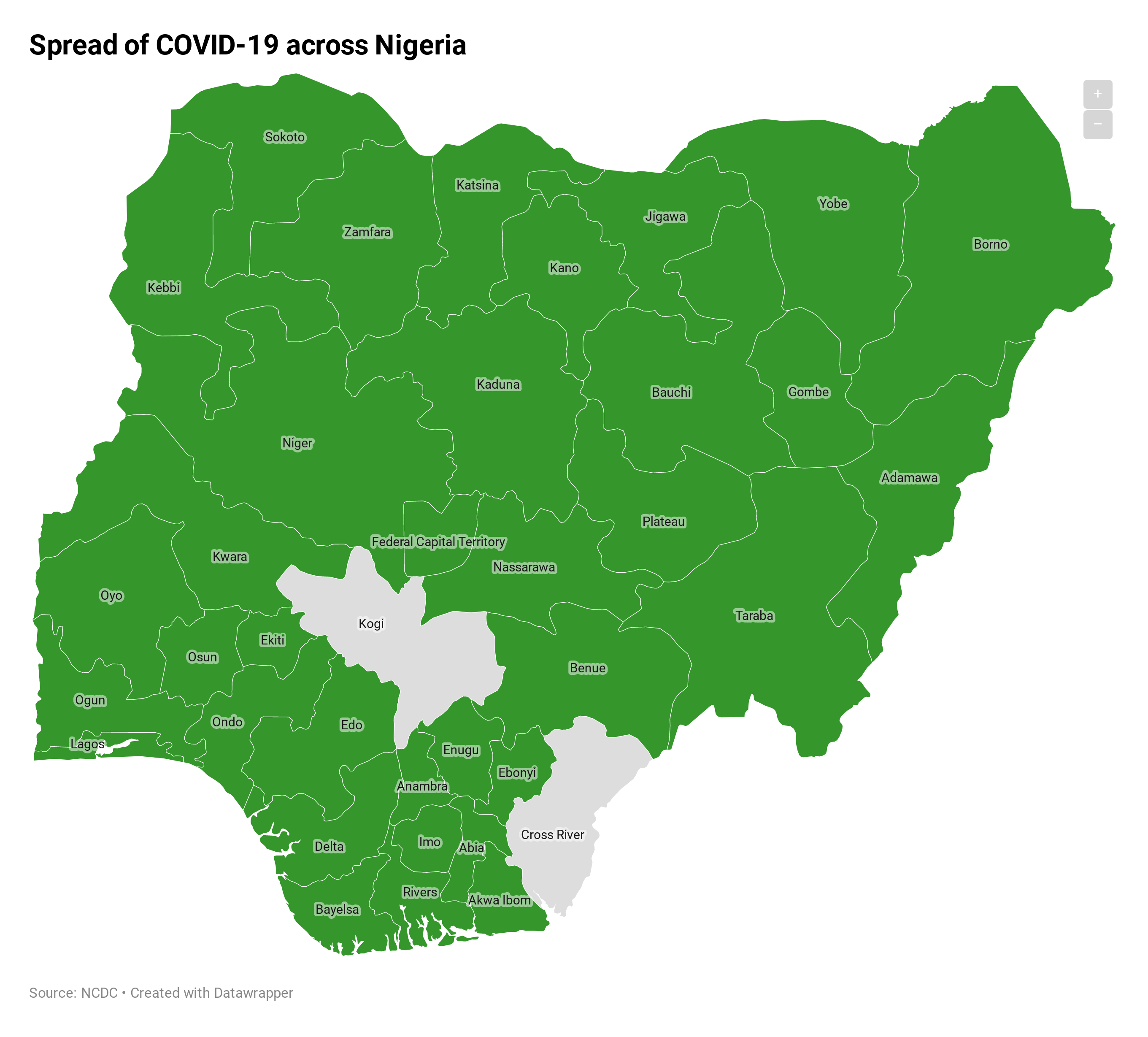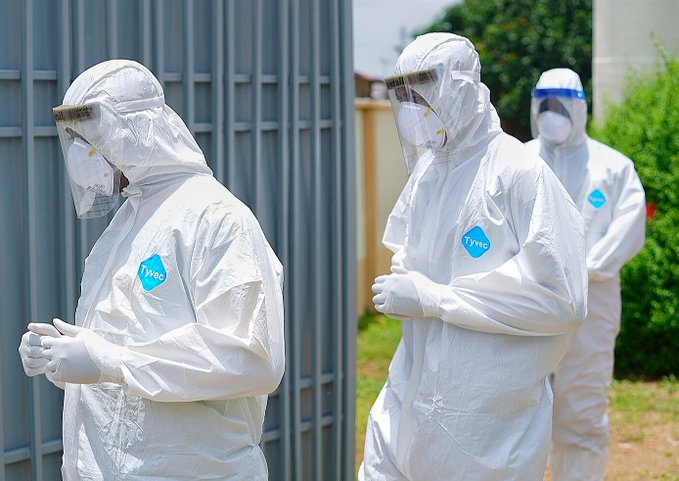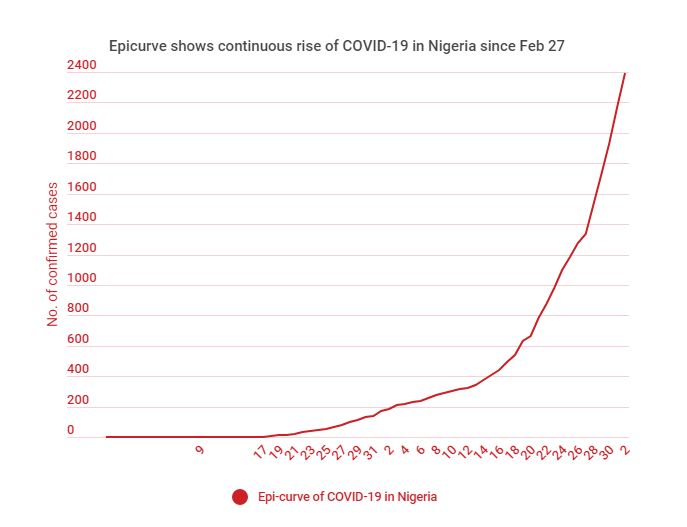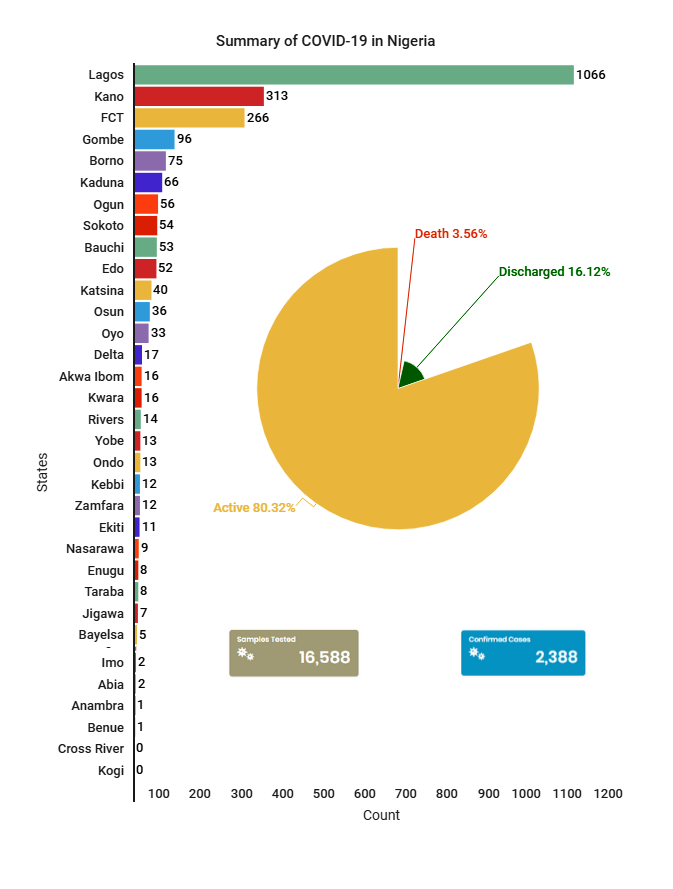…NCDC DG says objectives of COVID-19 lockdown were achieved
…Talks more on community transmission, says there are different outbreaks of COVID-19 in Nigeria
Director General (DG) of the Nigeria Centre for Disease Control (NCDC), Dr Chikwe Ihekweazu has said conversations to enable Nigerians to gain access to Coronavirus disease (COVID-19) treatment have started.
TheNewsGuru.com (TNG) reports Dr Ihekweazu, who made this known on Sunday as guest on the Sunday Politics television programme, said the COVID-19 treatment is a drug that failed clinical trial for the Ebola virus but passed for the new Coronavirus.
He said the COVID-19 treatment is a drug called Remdesivir, and that it is a victory for science, but that the National Agency for Food and Drug Administration and Control (NAFDAC) would be needed to speed up the regulatory process for it before it is made accessible and available to Nigerians.
“It is kind of a victory for science because you know over the last few days, we’ve gotten emerging evidence for the first drug that has shown evidence of efficacy.
“It is a drug called Remdesivir that came out to prominence over trials to use it for the Ebola virus. Well, it did not really work. So, those trials did not show that it worked for Ebola.
“But these drugs remained in our arsenal. We now tried it in a clinical trial and we have seen that it does produce benefit to people.
“In the beginning of this outbreak, there was a lot of pressure, not just on NCDC, on State governments across the country to buy and invest in medications, I won’t name them by name, but many types of pills both conventional, medical and everything else.
“I stood firm and said, listen, we have to wait for the science to come through for us, for the clinical trials to evolve because what we don’t want to do is give people something, not only are we not sure it will work, it could actually cause harm.
“Many of these drugs that we take have side effects. If we don’t know that the benefit outweighs the side effects, then, as a doctor, I am causing more harm to my patient and the one vow, as a doctor that we take, as most sacrosanct, is to cause no harm.
“So, I am actually happy that finally some clinical trial evidence has emerged about a new drug.
“What we now need to do is gain access to this drug. It is a difficult process at the moment but we’ve started those conversations to enable access to Nigerians.
“We will speak with NAFDAC to hasten, speed up the regulatory process so we can make this drug accessible and available to Nigerians.
“So, it is the first step. That is how science works. Sometimes, it is slower than we want it and would like it to be, but that is really what we have to do,” Dr Ihekweazu said.
NCDC DG says objectives of COVID-19 lockdown were achieved
Meanwhile, the NCDC DG also said that the objectives of the COVID-19 lockdown were achieved, stressing that there were three primary purposes in mind when President Muhammadu Buhari instituted the restriction of movement across Nigeria four weeks ago.
“Four weeks ago when Mr President instituted this restrictions of movement across Nigeria, focusing particularly on three States of the FCT, Lagos and Ogun States, there were three primary purposes.
“The one everyone remembers is of course we wanted to reduce the risk of transmission from one individual to another, and we achieved that to some extent. Our modeling shows that we had at least 50% reduction of where the numbers would have been if had not instituted the lockdown versus where they are today. So, there was some successes there.
“But, there are two other critical objectives. One is to prepare the work that we were doing in collaboration with all the State governments across the country to enable the public health system respond in that very difficult case finding, identification, contact-tracing all the contacts and following them up, enabling the development and maturity of that process. That is the second objective.
“The third objective was to enable the health system, altogether, to prepare for a completely new disease that has emerged in our landscape. That, too, has happened. So, in terms of the primary objectives of the lockdown, they have been achieved
“The objective was never, and to be clear, aiming at stopping transmission altogether before we restart our activities. We knew from the onset that, that was not going to be possible in our context.
“So, we needed so time to prepare ourselves for the easing of these measures from tomorrow, and this is not a complete easing. It is very carefully calibrated easing of the measure, and we work collectively, and not just the federal government of the State government, we need to now collectively make sure that we manage these measures as articulated by the presidential task force in order to keep ourselves safe, and to begin a new normal in Nigeria.
“Living with COVID-19, that is our reality, and we cannot get out of that reality until we get a vaccine and everyone in the global space is working towards that goal. So, until we get to that goal, we have to learn to live with this new normal, new reality.
“Whether we do it today or push it off one week or two weeks or three weeks, we will still have to come to that inflection point. So, Mr President made a very difficult decision last weekend. We literally weighed the pros and cons of all the data in front of him and he challenged us to start this process from tomorrow.
NCDC DG talks more on community transmission, says there are different outbreaks of COVID-19 in Nigeria
Meanwhile, the NCDC DG said even though epicurve of COVID-19 in the country shows just one outbreak, there are have different outbreak in Nigeria, and that the government was trying throw resources properly for that reasons.
“We have established that there is community transmission in three major cities: in FCT, Lagos and Kano. 75 per cent of all the cases in Nigeria still come from these three cities and that is why one of the measures that have been kept in place by Mr President is the restriction on inter-State travel. That is such an important restriction. It is important for every Nigerian to understand why this is important.
“We have different outbreak in Nigeria. Even though we show it on one curve, it is really not one outbreak. We are seeing three significantly large cities outbreak in Lagos, in Abuja, and Kano, that have instituted community transmission in almost all the States. Now, we beginning to see something like that happen in Borno, but less in almost all the other States we have found introductions. And you know many of them have been managed to a few number of cases.
“So, what we are trying to do is to throw our resources into these States that have established community transmission, trying to limit spread in these States, while preventing this virus from going to other States. The virus does not fly on its own to other States. It is carried by people, carried by individuals that are travelling. We have analyzed our own data to see that most of the cases in other States have emerged out of travelers from these high burden States.
“So, what we are trying to do is keep some of the most important restrictions such as inter-State travel, international travel and large congregations. Those will remain almost completely banned until subsequent weeks when Mr President will evaluate the situation.
“While we start easing the restrictions on work places, some of the economic activities can start because the economic activities are linked to livelihood, which are linked to lives. So, these are the decisions we have made.
“I really think every new directive to do things is always difficult in the beginning. I will really forgive a lot of Nigerians who have struggled with this in the early days. But what I always urge people is to keep at it. We will get better. People often jump to into judgment on how well people perform in the first days of the advice to wear masks or the early days of hand washing, but what I know is that people have been getting better at this.
“Communities have found ways to implement these, to put out hand washing basins in front of their offices, to use sanitizers. I see an increasing number of people wearing masks when I go out, so, Nigerians know what to do and I am confident that we will get to where we want to be by carrying everyone along, not by government saying you must do this, but by Nigerians themselves saying this is what we need to do as a people to stay alive. This is what I need to do for my business to stay in business. This is what I need to do as a family to keep my family safe. This is the only way we can achieve anything out of the new measures we are requesting.
“To be honest, I categorize these measures into two. There are some of the things like hand washing, sanitizers, that I hope that we will continue to do well after this outbreak. I hope never to be in a situation where I am advising Nigerians to wash their hands regularly. This must become a way of life for us.
“The use of sanitizer where water is not available must become a way of life. So, there are many of these restrictions that I hope will become contingent on how we wake up everyday and live our lives.
“The more difficult things for us that we will have to endure over the next few weeks, such as wearing masks, keeping at least two meters apart from each other, the restriction on mass gathering; these are new and very difficult for us because we are a social people. Even our work places are social environment. So, we will all have to learn”.
